- Home
- Jude Deveraux
The Duchess Page 10
The Duchess Read online
Page 10
Claire went back to the house, dressed for luncheon, and sat through that long meal, trying not to watch the two old ladies as they slipped silverware up their sleeves. She asked the long-haired man across from her about his plays and he eagerly invited her to participate in one. He said that she could be Anne Boleyn or Catherine Howard—both of whom had been beheaded by Henry VIII. Claire smiled politely and declined.
After luncheon she went to the gold drawing room and took a seat next to her mother. The three other women in the room kept giving her significant looks that she was sure were meant to make her leave the room, but Claire ignored them.
“Claire, dear, could you fetch my shawl? I find I am frightfully cold,” her mother said.
With a sigh, Claire went to her mother’s room, found a shawl, and took it to her. Later her mother wanted a lap robe, so Claire took the hint and left the ladies to their private talks.
“I’m to be the duchess and no one wants anything to do with me,” she said under her breath.
She wandered about the center section of the house aimlessly for an hour or so, then thought that if all the people were in the drawing rooms, the east wing had to be more or less vacant, so she decided to go look at it.
For the most part, it was a long hallway of closed doors. There were many portraits on the walls of men and women who must have been Harry’s ancestors, although none of them seemed to have his blond good looks. For the most part they had dark hair and eyes.
At the end of the corridor of the east wing she came to a half-open door. Tentatively, she pushed it open, and saw a delightful room done in blue silk, with a rug of peach and blue on the floor. The light streamed through the windows and fell across—wonder of wonders—books! As though a magnet were pulling her, she went to the shelves and began to read the titles. She pulled down Sir Walter Scott’s Waverley. When she turned, the book in her hand, she gasped, for sitting silently in a chair, looking at her, was the woman she saw at meals, the one who sometimes smiled at her.
“I’m sorry. I didn’t know anyone was in here. I’ll leave if I’m disturbing you.”
“No,” the woman said softly, and Claire guessed that she was quite shy. “Please stay.”
Claire took a seat. “This is a lovely room.”
“Yes.”
“Do you come here often?”
“Most of the time.”
Claire realized she wasn’t going to get much conversation out of the woman so she opened her book, but a few times she caught the woman staring at her. Claire guessed the woman to be in her thirties, yet she was dressed as though she were a schoolgirl, in a pink dress all of ruffles. The dress made her look older than she really was, and her hair was hanging down her back, just as Brat’s was, except that Brat was fourteen years old. Mentally, Claire began to re-dress the woman, to pull her hair back, give her pearl earrings and a plain dress of sleek lines that would show off what looked to be an excellent figure.
Claire moved uncomfortably when the woman caught her staring. “Perhaps we should introduce ourselves. I’m Claire Willoughby and I’m engaged to the duke.”
“Yes, I know. We all know who you are.”
She said it quite kindly, but the words exasperated Claire. “Everyone seems to know all there is to know about me, but I know nothing about anyone else.” She could feel her frustration building. “I’ve tried to introduce myself but the men won’t speak to me and neither will most of the women. My sister knows more about the house than I do and yet the house is to be mine someday. I can’t figure out who anyone is and Harry doesn’t seem to know either. It’s all quite frustrating.”
The woman smiled at that and Claire thought she could be quite pretty with a little work. “I’m Harry’s sister, Leatrice.”
Claire’s shock showed. “His sister? I had no idea he had a sister. Oh, forgive me for not introducing myself. I—”
“It’s all right. It’s easy to overlook someone in this house. I—”
She broke off because at that moment a bell over the door jangled. Immediately, Leatrice’s face lost all its pleasure and warmth. “Excuse me, I must go. Mother wants me.”
Before Claire could even open her mouth, Leatrice was gone from the room. Claire wasn’t sure she should stay in the room she now realized was Leatrice’s private sitting room, but the attraction of the books was too strong to resist. She settled in a comfortable chair, her feet tucked under her, and began to reread Waverley.
At five a gong sounded downstairs and she went down to tea, the men in one room and the women in another. She managed to get a seat next to Leatrice and tried to engage her in conversation.
“Is your mother very ill?” Claire asked.
At Claire’s remark, all conversation stopped and all eyes turned toward Leatrice, whose face turned red. A moment later she picked up her teacup; it clattered against the saucer and, in embarrassment, Leatrice put cup and saucer on the table and fled the room.
Arva looked at her daughter in reproach and Claire wondered what she had done that was so wrong.
After tea Claire went to her bedroom to sit and stare out the window. Brat had said the household was odd, but odd did not begin to describe the place. With longing she thought of her home in New York, where she could walk to the park, where she could visit people and places. She thought of her friends who used to come to her house and how they’d talk together throughout the afternoon. And she thought of her family’s servants, servants who were there to do whatever she asked. Up until she came to Bramley she’d not thought much about food. If she were reading and she wanted something to eat, she merely rang a bell and food would be brought to her.
Now she was in this enormous house, surrounded by people, and for the first time in her life she was lonely.
Miss Rogers chose the dress Claire was to wear to dinner and Claire didn’t protest. Miss Rogers was still sniffing because Claire had worn the off-the-shoulder dress the night before.
Dinner was long and boring and Claire didn’t try to participate in the conversation. She missed Harry and she missed…No, she didn’t miss anyone else. She didn’t miss Trevelyan, who was bad-tempered and contrary and difficult to be around. She thought of Harry and hoped he’d return soon. He’d have the mare he was buying her and her arm would be well by then and they could go riding together. When Harry returned, everything would be all right. And after they were married and she could change the rules of the house, things would improve.
After dinner, instead of going straight to bed, knowing that Miss Rogers would be waiting for her with her usual frowns and complaints, Claire went outside to the gardens. It was cold but she was wearing a wool dress, so she thought that if she walked quickly, she’d keep warm.
It was in the topiary garden, with its hedges trimmed in the shape of animals, that Trevelyan stepped out from behind a bush. She put her hand to her throat for a moment. “Good evening, sir,” she said, then stepped around him and started back toward the house.
“Not speaking to me, are you?”
“I have nothing to say to you.” She kept walking and he began to walk beside her.
“Did you get all your meals today?”
“Every one.”
“And you had an interesting day, lots of intelligent conversation? Did you talk of politics or maybe have some enlightening talks about your Bonnie Prince Charlie?”
“It’s cold out here and I’m going inside.”
“I see. They ignored you again.”
She turned on him. “No one ignored me. I met some very interesting people. I met a playwright who’s writing a part in his next play just for me. I had a discussion about the Prince of Wales and I met Harry’s sister. We spent some lovely time together.”
At that speech Trevelyan began to laugh.
Claire couldn’t help herself but she laughed also. How utterly heavenly it felt to laugh! How wonderful to be able to say something and have someone understand. “It’s really quite an extraordinary group of people who
live in that house. Leatrice has a bell in her sitting room and when her mother rings, she has to run. I wonder if she’s allowed to leave the room except for meals.”
“She isn’t.”
“How awful. And she dresses like a child. I wonder how old she is.”
“Thirty-one.”
“Is that all? She looks older. She—” She stopped as she saw Trevelyan sway on his feet. “You’re ill again.” She took his arm and led him down a path to a bench. By now she knew the garden rather well.
When he was seated, she sat beside him and he leaned a bit against her.
She wanted to put her arm around him, but she didn’t. If she thought the other people in the house were odd, Trevelyan was by far the oddest. One moment he seemed like a scholar, the next he acted like a criminal. He hid from everyone at the top of a tower, acting as though he wanted only to be alone. Yet…Yet every time Claire left the main house, he came to her. He covered his seeking her out—for that’s what she was beginning to see it as—with snide and cynical remarks, but the facts were still the same: he was as much in need of companionship as she was.
She could feel his body relaxing against hers. She had at times felt…well, attracted to him. He had looked at her with eyes that bored into her and made her know she should get away from him. But right now she felt almost motherly toward him. She wanted to pull him into her arms and feel his forehead for fever. She wanted to tuck him into bed and feed him warm soup. Instinctively, she knew he’d hate that, so she sat up straight and pretended she didn’t realize how weak he was feeling.
“About this morning,” she began slowly. “I had no right to get angry at you. You have to do what you think is right, just as the rest of us do.” She sighed. “I do wish this man MacTarvit could stay on the land until Harry and I are married, though. Then I shall see that he comes to no harm.”
“You’re planning to try to usurp Her Grace?” Trevelyan’s voice, usually so strong, so full of confidence, was weaker now.
“Of course. Harry says that when I’m the duchess I shall be able to do whatever I want.”
Trevelyan laughed at that. “The old woman would die before she gave up her power.”
“That’s not what Harry says.”
“And Harry knows everything, does he?”
He had an unequaled ability to enrage her. She forgot her motherly feelings and stood up, looking down at him. “I hope, sir, that you recover your strength and can make it back to your quarters on your own. I wish you long life and happiness. Now good night.” She turned away and hurried back to the house.
Chapter Seven
You are disturbed,” Oman said as he cleared the dishes from the table.
“Women,” Trevelyan muttered.
Oman smiled. “This one is different, is she not?”
Trevelyan drew on his pipe. “This one is different. This one is fire and ice. This one is woman and child. This one knows a great deal, yet is the personification of innocence.”
He leaned back in his chair and blew smoke rings into the air. “This one could be trouble,” he said aloud. Since he’d met her, he’d been unsettled. One minute he wanted to take her to bed and the next he wanted to read something he’d written to her. Tonight he’d felt her tenderness and he’d been surprised by it. Women who were as full of passion as she was weren’t usually the type to pay attention to a man when he was ill. Yet she had. She could be motherly as well as passionate—when he thought of the way she’d looked at his hands that day she’d read his translation, sweat began to form on his forehead. He had very much wanted to show her what he could do with his hands.
MacTarvit, he thought. She wants to meet old MacTarvit, wants me to keep the old man from stealing cattle. How is it any of my business? Trevelyan thought. What do I care about her bloody tradition?
He blew more smoke rings and smiled. She’d been quite pretty when she was raging at him about old man MacTarvit. Her hair, her eyes, that splendid bosom of hers. “Harry doesn’t appreciate her,” he said aloud. Harry doesn’t know she has a mind, he thought. Harry didn’t even know how easily she could be aroused to that passion that was so close beneath the surface, but Harry wasn’t interested enough to try to teach her anything. Harry had never wanted to be a teacher. If she were mine, Trevelyan thought, I would spend the time to teach her all that she could learn, and, if she were mine, I wouldn’t leave her alone for days at a time. If she were mine I’d—
He broke off, frowning, then stood up. “I’m going to bed,” he said and paid no attention to Oman’s look of shock. Trevelyan never went to bed before the wee hours of the morning—he said he had too much to do in his life to lose time sleeping.
Trevelyan rose very early the next morning. Leaving his sitting room, he went up a flight of old stone stairs, opened an overhead door, and made his way up to the lead roof. He walked across the edge of the roof, noting that what Harry had said about the roof being in bad shape was true. When he came to another door in the roof, he opened it and went down a narrow, dirty staircase. It was obvious that no one had used these stairs in many years, for he bent to pick up something and saw that it was a toy soldier. It was either Trevelyan’s or his older brother’s; Harry had not been allowed to play with his siblings.
Trevelyan went down two flights of stairs until he came to a small door and opened it. Just as he knew it would, it opened behind an enormous tapestry.
He made his way from behind the tapestry and into the darkened room and was startled to see a small, round, gray-haired lady standing there watching him. There was almost no light from either inside or outside the room so he had some difficulty making out who she was.
“Hello, Aunt May,” he said, smiling. “Still can’t sleep, I see.”
She studied him for a moment. “You’re Vellie, aren’t you? You’ve grown into a man.”
“No, Aunt May. Vellie died, remember?”
“Ah yes. So he did.” She continued to study him. “Then who are you?”
“Vellie’s ghost,” he said and winked at her.
“As a ghost you should have a great deal of company in this house,” she said and walked out of the room.
“Nothing’s changed at all,” Trevelyan muttered as he went out another door of the room and made his way to a small sitting room, then found a door in the paneling.
When the house had been a castle there had been several entrances and exits that were secret—so the family would have a way of escaping should there be danger. As later generations added on to the house they continued to make secret passages and staircases and concealed doors. In the eighteenth century an ancestor of Trevelyan’s had enclosed the whole structure in a modern, beautiful shell but he had not bothered to change the interior, or, if Trevelyan knew his family, they hadn’t had enough money to do a proper job. As a result, the entire house was riddled with secret tunnels and passageways. Trevelyan and his older brother, and sometimes Leatrice, had explored these passages thoroughly.
He lit a candle and made his way up one stair, opened a door quietly, and entered the room that had once been his father’s. It was as he thought: no one was staying in the room. He went to the chest that was against one wall and opened it. His hand trembled a bit as he opened the chest, for he could feel his father’s presence all about him. It was as though the man might enter the room at any moment.
What would Trevelyan say to the man if he did enter? Would he be glad to see his father, or would he spit on the ground at his feet? Trevelyan honestly didn’t know.
It didn’t take Trevelyan long to find what he wanted. He pulled out the tartan that was the laird’s plaid. It was a deep, rich blue, with a bit of red and some green in it. He smiled as he thought of Miss Claire Willoughby. Let’s see if she can identify this tartan, he thought. Trevelyan didn’t think the pattern was in any book, for this was the tartan for the laird of Clan Montgomery, and only the laird had the right to wear it.
He removed his clothes down to his smalls, leaving his sh
irt on, spread the yards of cloth on the floor, then tried to do what he had so often seen his father do: roll himself in the thing. When his father had done it, it had looked easy, but Trevelyan found it was more difficult than he had imagined it would be. Within minutes he was cursing all things Scottish.
“Never wear the small kilt,” Trevelyan could hear his father telling his oldest son as Trevelyan used to stand in the doorway watching. “A laird has a responsibility. If the lairds don’t carry on the tradition then no one will.”
So now Trevelyan was doing his best to wrap himself into the plaid as he’d seen his father do. If one had to wear a damned skirt then why couldn’t it be an easy one like Harry wore? He smiled at the answer: he was trying to impress a girl and he knew she would be much more impressed with the long kilt than the short one.
At last he got the fabric rolled about his waist and belted into place. He slung the end over his shoulder and pinned it with his father’s brooch. He hung the sporran about his waist, put on the heavy socks, then the shoes with the holes in them, holes that allowed the water of the eternally wet Scottish land to flow out.
When he was done, he looked at himself in his father’s mirror, and for a moment, he could almost see his father standing in front of this mirror wearing this same tartan. His eldest son would be in front of him and Trevelyan would be in the back, watching the two of them.
Now Trevelyan turned away and slipped out the door he’d entered. He went up a flight of stairs, across a landing, then had to crouch as he walked through a short tunnel. He wasn’t sure which room was Claire’s but he had a good idea. His mother was not a woman of great imagination and would therefore probably put her in the third-best guest room—which is what the old hag would no doubt think an American was: third best.
Slowly, so the unused door wouldn’t creak, he opened it, and the big portrait of his great-great-aunt moved with the door.
By now there was a bit of light outside, so he went to the window and drew the curtain back. She was in bed, sleeping on her stomach like a child. He smiled down at her, for the bed was a mess. She had kicked the covers and twisted them until most of them were on the floor.

 Eternity
Eternity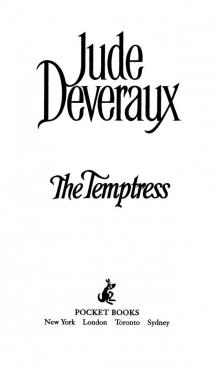 The Temptress
The Temptress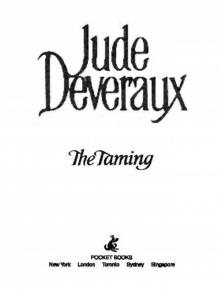 The Taming
The Taming True Love
True Love Forever...
Forever... Lavender Morning
Lavender Morning The Velvet Promise
The Velvet Promise Days of Gold
Days of Gold Temptation
Temptation Counterfeit Lady
Counterfeit Lady Twin of Fire
Twin of Fire Remembrance
Remembrance Velvet Angel
Velvet Angel The Enchanted Land
The Enchanted Land Just Curious
Just Curious Wild Orchids
Wild Orchids First Impressions
First Impressions Wishes
Wishes Twin of Ice
Twin of Ice Ever After
Ever After An Angel for Emily
An Angel for Emily River Lady
River Lady The Invitation
The Invitation Scarlet Nights
Scarlet Nights The Black Lyon
The Black Lyon High Tide
High Tide The Girl From Summer Hill
The Girl From Summer Hill Sweetbriar
Sweetbriar As You Wish
As You Wish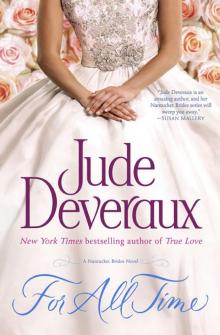 For All Time
For All Time Secrets
Secrets The Blessing
The Blessing Upon a Midnight Clear
Upon a Midnight Clear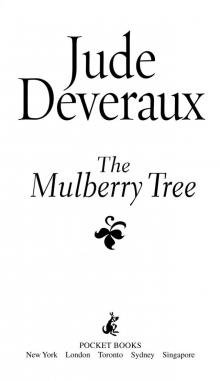 The Mulberry Tree
The Mulberry Tree The Scent of Jasmine
The Scent of Jasmine Sweet Liar
Sweet Liar Carolina Isle
Carolina Isle Holly
Holly A Knight in Shining Armor
A Knight in Shining Armor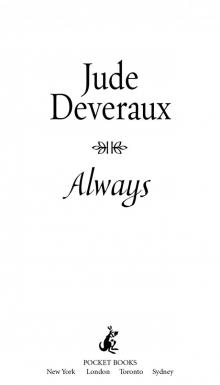 Always
Always The Duchess
The Duchess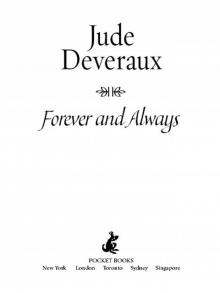 Forever and Always
Forever and Always The Raider
The Raider The Conquest
The Conquest Moonlight in the Morning
Moonlight in the Morning The Heiress
The Heiress Stranger in the Moonlight
Stranger in the Moonlight Moonlight Masquerade
Moonlight Masquerade Change of Heart
Change of Heart The Awakening
The Awakening Velvet Song
Velvet Song Someone to Love
Someone to Love The Summerhouse
The Summerhouse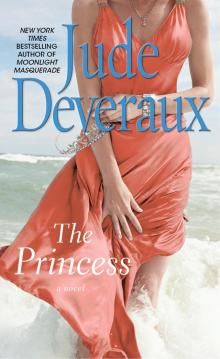 The Princess
The Princess Highland Velvet
Highland Velvet A Forgotten Murder
A Forgotten Murder Lost Lady
Lost Lady Met Her Match
Met Her Match LEGEND
LEGEND Forever: A Novel of Good and Evil, Love and Hope
Forever: A Novel of Good and Evil, Love and Hope Scarlet Nights: An Edilean Novel
Scarlet Nights: An Edilean Novel